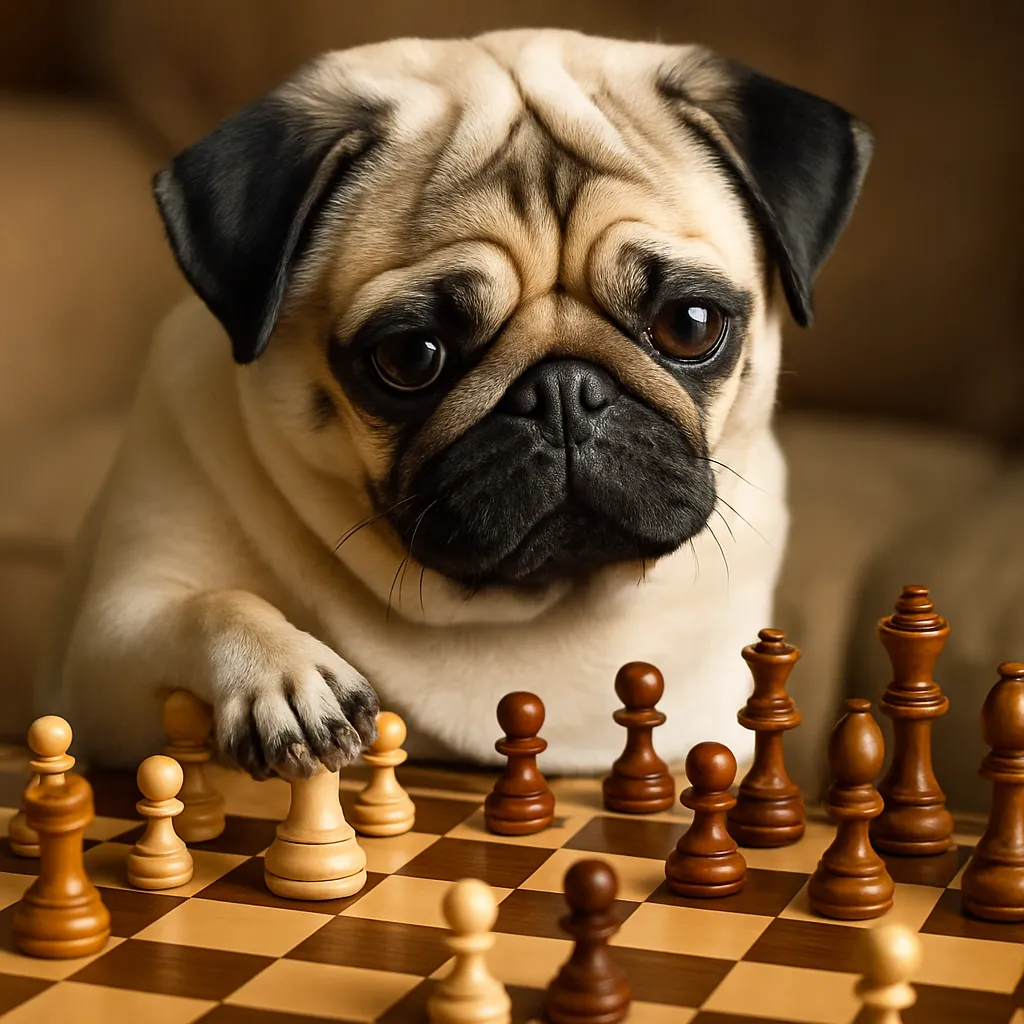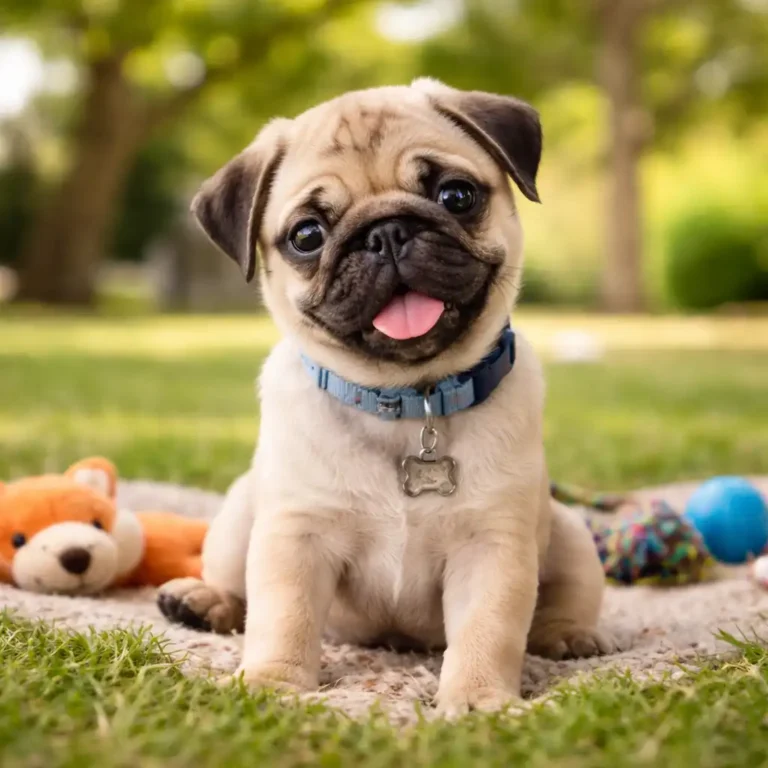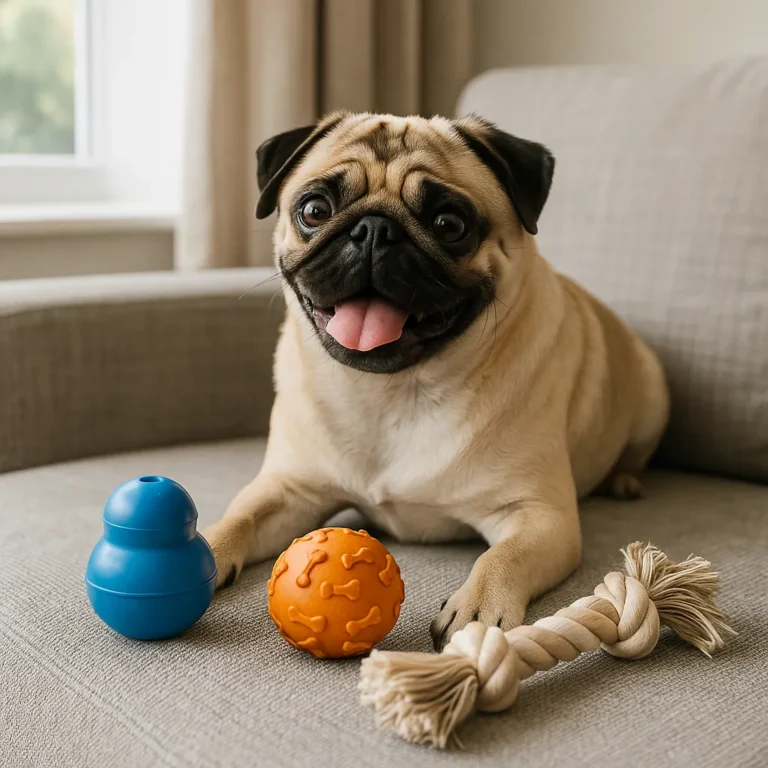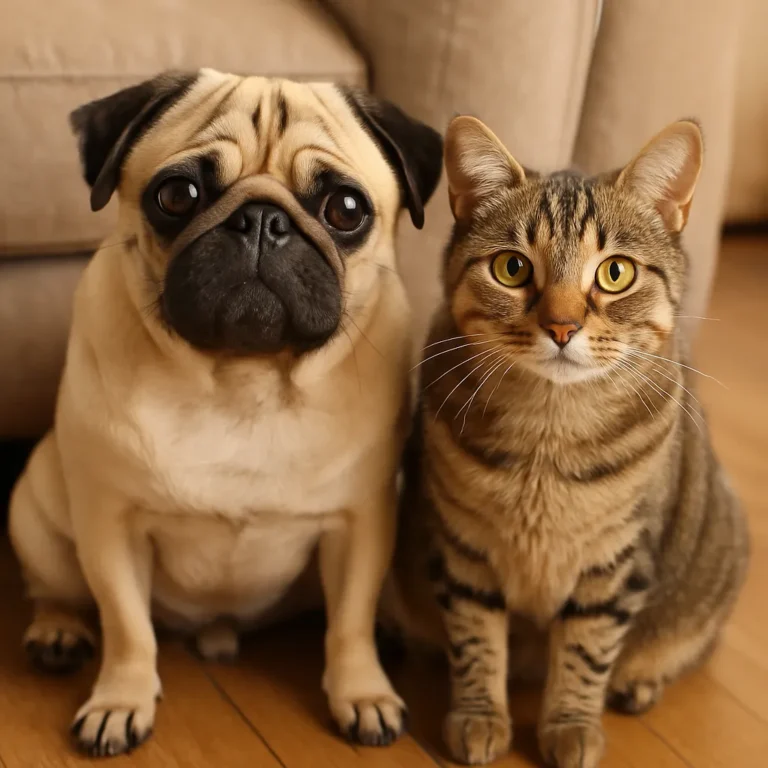Are Pugs Intelligent Dogs? What Owners Should Know About Their Clever Side

Disclosure: This post contains affiliate links. As an Amazon Associate, I earn from qualifying purchases—at no extra cost to you.
Pugs may look silly, but there’s more intelligence behind those big eyes than people expect. While they’re not famous for following commands like working breeds, pugs are smart in their own way. Their intelligence shows up in problem-solving, understanding routines, and reading human emotions.
They’re not traditional obedience champions—but that doesn’t mean they’re not clever.
Pugs Learn Quickly, If the Reward Is Right
Pugs can learn basic commands and routines easily when there’s something in it for them. According to feedback from many pug owners, treats, praise, and short, upbeat sessions work best. Pugs tend to lose interest in long training sessions, so five to ten minutes of focused attention is usually enough.
They’re often described as “opportunistic learners.” If they know a treat’s coming, they’ll focus. Without a clear reward? Many owners report their pug simply walks away.
Pugs aren’t disobedient—they’re just selective about how they use their energy.
Real Problem-Solving Dogs
Many pug owners share stories of their dogs finding ways to open doors, sneak treats, or avoid doing something they dislike. This behavior isn’t stubbornness—it’s problem-solving.
Unlike dogs bred to work closely with humans, pugs were developed as companions. That means their thinking style is different. They’re not focused on tasks—they’re focused on outcomes that benefit them.
This problem-solving approach shows their unique form of intelligence, even if it sometimes looks like mischief.
Emotional Intelligence Is a Pug’s Strength
One area where pugs consistently shine is emotional awareness. They watch their owners closely, often responding to moods and routines without needing prompts.
According to reports from pug owners and pet behaviorists, these dogs are skilled at picking up emotional cues. Many pugs comfort their owners when they’re sad or stick close during stressful days.
While harder to measure than command-following, emotional intelligence is a key trait that makes pugs excellent companion animals.
Training Takes Patience (and Snacks)
Pugs are clever but easily distracted. Outdoor training can be difficult, as new smells and sounds quickly steal their attention. Many owners suggest working indoors with minimal distractions and using high-value treats as motivation.
It’s important to avoid harsh corrections. According to pug forums and trainers, positive reinforcement is much more effective. Pugs respond to praise and treats far better than scolding.
Their intelligence isn’t about obedience—it’s about understanding routines and responding to positive attention.
Discover Smarter Training with KingdomofPets.com
When it comes to training your clever pug, having the right tools and guidance can make all the difference. That’s where KingdomofPets.com steps in. This resource offers easy-to-follow training programs designed specifically to help small breeds like pugs learn faster and with less stress.
If you want to see your pug’s intelligence shine and make training a rewarding experience for both of you, check out what KingdomofPets.com has to offer.
View on KingdomofPets.com
Conclusion
Pugs are intelligent, but in their own way. They’re problem-solvers, emotionally aware, and clever enough to learn routines when it benefits them. While they may not be eager to obey every command, most owners find their pugs use their smarts to get what they want—and to form strong bonds with their humans.






